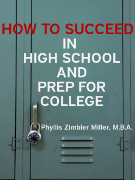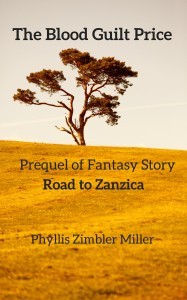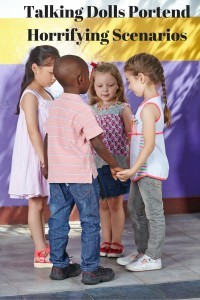Phyllis Zimbler Miller's Blog: Phyllis Zimbler Miller Author, page 13
January 20, 2016
Proposed Changes for College Applications
Stump’s article lists the following recommend changes:
De-emphasize standard testing, which could include making the SAT and ACT optional.
Quality over quantity with extracurricular activities and advanced placement classes, with students showing sustained commitment to a community service rather than just listing a bunch of things they have done.
Factor in family and community responsibilities to level the playing field in admissions by capturing the contributions of low-income and working-class students.
Include an essay question on college applications for students to write about their contributions to their families and others.
Broaden criteria to include public service that consistently contributes to the common good as part of the admissions process instead of just “brag sheets” listing two-week community service projects.
Widen the net by emphasizing a good fit for each student rather than the notion that there are only a few elite colleges that matter.
Because of my coaching work with high school students applying to college and my subsequent writing of the book HOW TO SUCCEED IN HIGH SCHOOL AND PREP FOR COLLEGE, I found this report’s recommendations very exciting.
In my guide for students I emphasize following your passion. This translates into in-depth extracurricular activities rather than a laundry list of activities.
And I also talk about using your job experiences — especially if you need to contribute to your family’s income — as possible material for college application essays.
While Stump cautions that any changes may not take affect for two or three years, this news is very encouraging for students of all backgrounds when applying to college.
Click here to read the entire Today.com article now.
© 2016 Miller Mosaic LLC
Phyllis Zimbler Miller (@ZimblerMiller) has an M.B.A. from The Wharton School and is the author of fiction and nonfiction books/ebooks. Phyllis is available by skype for book group discussions and may be reached at pzmiller@gmail.com
Her Kindle fiction ebooks may be read for free with a Kindle Unlimited monthly subscription — see www.amazon.com/author/phylliszimblermiller — and her Kindle nonfiction ebooks may also be read for free with a Kindle Unlimited monthly subscription — see www.amazon.com/author/phylliszmiller
The Blood Guilt Price: A Fantasy Short Story
“Where’s Father?” she screamed at the family helper, but he only shook his head, too winded to speak.
Leeze reached the horse and jerked the reins from the helper’s hands. “Quiet, Magnolia,” she whispered in the horse’s ear. “You are safe now.”
The horse trembled under her hands as she inspected its body. No obvious injuries. The saddle remained in place but no saddle bags.
She thrust the reins back into the helper’s hands. “See to Magnolia’s care but keep her saddled — and saddle my horse. I will be leaving in one watch cycle with both horses.”
Leeze ran back into the main building and wrote an inscription for her mother, who had earlier ridden to a neighboring homestead. Then Leeze changed into male clothing, her father’s cut-down garments worn when practicing with her sword. At the age of 21 star cycles she knew to hide her gender if riding alone.
Shoving a waterskin into her own saddle bags, she considered her next actions. Her father had been due home this sun cycle from the capital city of Zanzica where he had journeyed to pay the annual tax allotment. Therefore he should not be that far from Holden.
Leeze recited the ancient Tartum prayer for travelers and swung up into the saddle on her own horse Fermesh. She took Magnolia’s lead from the helper and trotted toward the road leading to Zanzica.
***
The circling of vultures around a solitary tree at the side of the road alerted her before she reached the spot. Her fingers clenched on the reins of her horse. Did she really expect not to find this answer?
The moment the figure sprawled on the ground came into view Magnolia whimpered. Leeze slid off Fermesh and patted Magnolia’s head.
She walked toward the body lying face down, the body from whose clothes she recognized as her father. She knelt down and stared at the dried blood congealed around the stab wound in his back.
Standing, she recited the Tartum prayer for the dead.
Black fury descended into her mind. She clutched the sword she wore at her side and vowed she would find the perpetrators — she would strike them down as they had struck down her father!
And for what reason? Her father had no enemies, and surely the tax allotment had already been delivered. He would have had nothing of significant value with him. Yet, as she glanced around the ground for his saddle bags, she found no evidence of their existence.
The movement of the horses brought her back to herself. First she must needs report this murder to the closest magistrate. Then she must seek help to return her father’s body to Holden, where he would be buried with his ancestors.
She shook her head, realizing that she could not leave his body. She would wait by the road until another traveler passed.
Three watch cycles later Leeze spotted two men riding toward her, both wearing the colors of the royal courier service.
As they came closer she dropped into a curtsey, only realizing as she did so that she wore men’s clothing and should have bowed. Then, as her dark unbound hair fell forward into her face, she also realized she hadn’t plaited her hair into the male-favored single braid.
The men stopped and the younger one jumped off his horse, tossing the reins to his companion.
He looked into her face and said, “My lady, how can we help you? And why do you dress as a man?”
“I am Leeze am Holden and I have just found my father’s murdered body. I dressed this way to seek him after his horse returned without him.”
She caught her breath, determined not to cry now. “I need help to alert a magistrate and return my father’s body to Holden.”
The courier bowed. “I am Daglish and my companion is Xan. We are riding on official business to the magistrate of Healfix, which is only half a watch cycle from here. I will remain with you while Xan completes our assignment and asks the magistrate to return here.”
With a nod to Daglish, Xan took off.
“Are you far from Holden?” Daglish said.
“About two watch cycles.”
“Have you eaten today?”
When she shook her head, he reached into his saddle bags and brought out a round of cheese, from which he cut off two large slices.
“Have you said the Tartum prayer for the dead?” he asked.
When she nodded he said, “The magistrate will surely execute the law of responsibility. He will bring a map of this area and measure whose homestead is closest. That homestead must needs pay the blood guilt price.”
Leeze nodded. Paying the blood guilt price would satisfy preserving the sanctity of the land. Yet whoever paid that ceremonial price might not be the actual murderer. And only the death of the actual murderer would satisfy Leeze!
***
Three sun cycles later Leeze stood in court as the magistrate pronounced sentence on Tretain, Lord am Cranag. At the site of her father’s murder the magistrate had determined that Lord Tretain’s homestead land lay closest to the body of her father. The magistrate had then summoned Lord Tretain to the magistrate’s court in Healfix to answer to the law of responsibility.
The required appearance had been scheduled so that Leeze and her mother could first attend to the Tartum funeral rites after the magistrate’s people had conveyed her father’s body back to Holden. Leeze had gone through the ancient rituals consumed with the need for the blood guilt to be assuaged, and her mother could not bring herself to attend this court appearance.
The magistrate had questioned Lord Tretain as to whether he or his people had killed Leeze’s father. Lord Tretain had denied this on behalf of himself and his people nor did Lord Tretain know who might have been responsible.
The magistrate recited, “According to the law of responsibility, you must pay the sum of 5,000 coin to the family of Horram am Holden. I will expect court receipt of this coin five sun cycles from now, and we will then deliver the blood guilt price to the family.”
Tretain, Lord am Cranag glared at the magistrate, although Leeze knew that Lord Tretain had to comply or risk forfeiting his own holdings.
He touched his closed fist to his heart signifying acceptance of the sentencing, inclined his head to the magistrate, and strode from the court.
Leeze stood, swishing her long dress into place so that she would not trip over the hem. She had been able to dress in her own clothes as a family helper had accompanied her to the magistrate’s court.
But next star cycle it must needs be she who would journey to Zanzica to pay the Holden homestead’s tax allotment. She could not take a helper with her for such a lengthy journey as her mother would need both helpers at the homestead. For safety on the road Leeze would dress in male clothing with her hair plaited in a single braid. And she would always remember to bow.
She followed Lord am Cranag out of the court, standing on the road to watch him and his men mount their horses.
As he turned his horse to depart, he glanced back at her. “The coin will be paid, but that will not be the end of our association,” he said.
Leeze did not reply, her eyes fastened on the saddle bags attached to his saddle – the ones with the pattern she had carved into her father’s bags.
Tretain, Lord am Cranag had her father’s saddle bags!
Had he or his men murdered her father? If so, some day she would have her revenge – regardless of the payment of the blood guilt price.
~
THE BLOOD GUILT PRICE short story is the prologue of the Kindle ebook fantasy story ROAD TO ZANZICA.
Read ROAD TO ZANZICA for free via Amazon’s Kindle Unlimited monthly subscription at www.amazon.com/Road-Zanzica-Fantasy-Adventure-Story-ebook/dp/B015M48QOK
© 2016 Miller Mosaic LLC
Phyllis Zimbler Miller (@ZimblerMiller) has an M.B.A. from The Wharton School and is the author of fiction and nonfiction books/ebooks. Phyllis is available by skype for book group discussions and may be reached at pzmiller@gmail.com
Her Kindle fiction ebooks may be read for free with a Kindle Unlimited monthly subscription — see www.amazon.com/author/phylliszimblermiller — and her Kindle nonfiction ebooks may also be read for free with a Kindle Unlimited monthly subscription — see www.amazon.com/author/phylliszmiller
January 18, 2016
No Collaboration With Fictional Characters
NOT COLLABORATING WITH YOUR CHARACTERS
Now I will admit that the word collaboration usually means to me collaborating with the enemy, such as in French citizens collaborating with the Nazis during WWII (in a short story of mine written years ago and just stumbled upon yesterday).
Yet Croasmun’s meaning is different and very powerful. If I correctly understand his meaning, a writer should not collaborate with her or his characters by making things too easy for them to accomplish.
The homework for this particular lesson entailed identifying two scenes in the individual screenplay each of us is using for this course and “dialing up” those scenes.
And, yes, it took me a while to figure out how to “dial up” certain of my scenes to make these more challenging. Then two instances came to mind in my sci fi screenplay THE MOTHER SIEGE — this takes place in the near future of 2049 and is adapted from my dystopian story free to read on Wattpad.
In the third act of this screenplay the group of mothers, one man, and six children are engaged in their desperate struggle to escape the Provisional Government land mass west of the Mississippi. In one scene the male infectious disease doctor gives instructions on what they are to do to treat any wounded during the coming government attack on their location.
And everyone in the group immediately agrees with what to do!
With some thought I realized that this is an example of my characters collaborating with me the writer. It should not be that easy to get everyone on board.
In fact, the children range in ages from 6 to 12. Realistically this subject of wounded in battle should bring up questions of what happens if someone dies right then and in general what does death mean. In other words, I have to rewrite this scene to have push back from the characters. They cannot all just immediately agree to collaborate with the doctor’s instructions.
A second example is the discussion scene between the 12-year-old boy Jonah and the 12-year-old girl Isidora who are considering having sex for the first time that evening. Of course 1) the teens think they will probably die the next day in the Provisional Government’s attack, 2) in 2049 there is no risk of pregnancy or STDs even if they somehow miraculously survive, and 3) they believe they are in love.
Although I thought this scene made sense, a comment on THE MOTHER SIEGE story in Wattpad criticized me for teens have sex at this young age of 12. Putting that comment together with Croasmun’s collaboration warning, I realized that I can rewrite this scene to have push back from both teens about taking this big step. In other words, I need to rewrite this scene so the teen characters do not collaborate with me.
In working more on this question of collaboration, I will undoubtedly find many other examples in my own screenplay writing where I have been too easy on the characters. I will be “sharpening” my keyboard to go after these scenes!
Click here to read for FREE the dystopian sci fi story THE MOTHER SIEGE on Wattpad.
© 2016 Miller Mosaic LLC
Phyllis Zimbler Miller (@ZimblerMiller) has an M.B.A. from The Wharton School and is the author of fiction and nonfiction books/ebooks. Phyllis is available by skype for book group discussions and may be reached at pzmiller@gmail.com
Her Kindle fiction ebooks may be read for free with a Kindle Unlimited monthly subscription — see www.amazon.com/author/phylliszimblermiller — and her Kindle nonfiction ebooks may also be read for free with a Kindle Unlimited monthly subscription — see www.amazon.com/author/phylliszmiller
January 13, 2016
Is Using Too Much Magic for a Fictional Character “Cheating”?
I’ve been thinking about this partly because I’m in favor of strong female protagonists who can defend themselves and partly because of the homework assignments in the online ScreenwritingU.com course I’m taking. In this course we’re working on character development and creating conflicts for our ordinary protagonists to overcome.
And while I love MYSTIC AND RIDER (staying longer on the treadmill to read more of the story), I’d love it even more if Senneth overcame some (or all) obstacles without resorting to magic.
This seems particularly important to me because Senneth and her small band are on a classic Joseph Campbell hero’s journey. This group must enter unfamiliar territory to bring back to their king the boon of vital strategic information.
I’m also contemplating this question of fictional characters “cheating” by always using magic to get out of trouble because, in my Kindle fantasy adventure story ROAD TO ZANZICA, so far there is no magic. And I don’t want to add magic because I want Leeze am Holden — the sword-wielding strong female protagonist — to have to rely on her own abilities and those of her companions rather than having an “easy out” with magic.
For an example of a strong female protagonist in sci fi or fantasy who does not use magic, you have only to think of the new STAR WARS film. Rey does not use magic to overcome obstacles; she uses intelligence, determination and the willingness to pick up a lightsaber and defend herself.
And speaking of ordinary fictional protagonists undertaking extraordinary feats:
Screenplay writers are often taught to include, early on in a screenplay, an “indication” that a character can later realistically undertake an heroic act. The one example that immediately comes to my mind is in the 1996 film EXECUTIVE DECISION. In this film Kirk Russell’s character is shown at the beginning of the movie learning to fly at a local airfield.
Then at the climatic moment, when he must fly and land a jetliner to save everyone on board, we the audience believe that, with some coaching from the air traffic control tower, he can land the jet. (Note that this “indication” was achieved with visual storytelling and not with dialogue that said “Hey, I hear you’ve taken a few flight lessons.”)
In conclusion, I’ll continue to be on the lookout for strong female fictional characters who can defend themselves by ordinary means as well as magical means.
Click here to read for FREE with a Kindle Unlimited monthly subscription (or for 99 cents) my fantasy adventure story ROAD TO ZANZICA. And if you enjoy the story, I’d appreciate a good review on Amazon.
© 2016 Miller Mosaic LLC
Phyllis Zimbler Miller (@ZimblerMiller) has an M.B.A. from The Wharton School and is the author of fiction and nonfiction books/ebooks. Phyllis is available by skype for book group discussions and may be reached at pzmiller@gmail.com
Her Kindle fiction ebooks may be read for free with a Kindle Unlimited monthly subscription — see www.amazon.com/author/phylliszimblermiller — and her Kindle nonfiction ebooks may also be read for free with a Kindle Unlimited monthly subscription — see www.amazon.com/author/phylliszmiller
January 8, 2016
Novel Writing vs. Screenplay Writing
In the shower I pondered that quote and how the word “instead” should have been left off. This is because telling the story in novel format or in screenplay format is very different.
For the last few years I’ve been taking my screenplays (and the ones I write with my husband Mitchell R. Miller) and adapting them into books and ebooks on Amazon. And less often I take a novel I’ve written and adapt it for a screenplay.
And “adapt” is the operative word because the two formats are not the same.
One of the biggest differences is POV (point of view). In contemporary fiction writing the preferred method is a single POV in any scene. In other words, you can have multiple POV characters in a novel as long as those multiple POVs are not in the same scene. In any one scene the reader can only know the thoughts of one POV character.
In screenplay writing there is no POV character because there is no internal monologue. This makes writing easier in one respect and harder in another. For example, if dialogue to share a character’s inner thoughts isn’t appropriate in the screenplay, how do you show his/her angst or any other private emotion? (Cigarette smoking used to be a frequent stand-in for this angst.)
And while a character whose POV you want to share could reveal this in dialogue, you have to be very careful not to be “on the nose” with the dialogue — for example, the “as you know, Bob” method. This is having one character tell something to a second character who already knows the information only so that the information can be imparted to the audience.
Subtext is very important in screenplay dialogue, and I’m still working on mastering this. A subtext example would be a couple fighting over whose turn it is to take out the trash when the subtext of the dialogue is really who loves who more.
At a seminar I once heard a famous Hollywood screenwriter say that he adapts a book to a screenplay by opening the book and starting to type. In terms of the plot, this may be true if the novel is told more or less in linear fashion and without huge swatches of interior monologue. This is not true for all books.
One such example is the 1997 Oscar best picture winner “The English Patient.” It was known around Hollywood that many studios had passed on the novel by Michael Ondaatje because the adaptation could not be imagined. After I saw the movie (and predicted it would win the Oscar for that year) I read the novel. While the novel is also compelling, I saw what a genius Anthony Minghella was in his adaptation of the book. (For the success of the movie it surely helped that Minghella also got to direct his screenplay.)
In terms of my own writing of both novels and screenplays, I am always working on learning more. At this precise moment I just finished Jeff Gerke’s book “The First 50 Pages” (recommended by Paula Wynne’s book “Pimp Your Fiction”) and am now reading his book “Plot Versus Character” at the same time I’m taking a ScreenwritingU.com online course.
Much of the knowledge I’m learning from the books and the course is applicable to both novel writing and screenplay writing. In fact, I’m in the midst of revising a scene in my feature film screenplay of sci fi THE MOTHER SIEGE and then I’ll revise that scene in the novel.
And speaking of that revision, it is time to get back to my homework for the ScreenwritingU.com course!
© 2016 Miller Mosaic LLC
Phyllis Zimbler Miller (@ZimblerMiller) has an M.B.A. from The Wharton School and is the author of fiction and nonfiction books/ebooks. Phyllis is available by skype for book group discussions and may be reached at pzmiller@gmail.com
Her Kindle fiction ebooks may be read for free with a Kindle Unlimited monthly subscription — see www.amazon.com/author/phylliszimblermiller — and her Kindle nonfiction ebooks may also be read for free with a Kindle Unlimited monthly subscription — see www.amazon.com/author/phylliszmiller
January 5, 2016
Announcing NO STONE UNTURNED
“Lots of other scholars disagreed with Klapman’s theories,” Rabbi Nancy Levine said. “You know what they say — the reason academic politics are so fierce is because the stakes are so low.”
“I’ve heard that,” Rebecca said. “The police probably have too.”
In NO STONE UNTURNED Rebecca is asked to investigate a murder in order to exonerate her friend Rabbi Nancy Levine, who is the prime suspect in this case. Rebecca must use tactics from her karate training and from the biblical story of Yael in the Book of Judges to snare the real culprit.
Click here now to read NO STONE UNTURNED — only 99 cents or free via a Kindle Unlimited monthly subscription.
For more Rebecca Stone cozy mystery adventures:
Click here for novel CAST THE FIRST STONE on Amazon (may be read for free via Kindle Unlimited monthly subscription).
Click here for two short stories in TWO BIRDS WITH ONE STONE on Amazon (may be read for free via Kindle Unlimited monthly subscription).
Click here for work-in-progress novel SINK LIKE A STONE on Wattpad.
© 2016 Miller Mosaic LLC
Phyllis Zimbler Miller (@ZimblerMiller) has an M.B.A. from The Wharton School and is the author of fiction and nonfiction books/ebooks. Phyllis is available by skype for book group discussions and may be reached at pzmiller@gmail.com
Her Kindle fiction ebooks may be read for free with a Kindle Unlimited monthly subscription — see www.amazon.com/author/phylliszimblermiller — and her Kindle nonfiction ebooks may also be read for free with a Kindle Unlimited monthly subscription — see www.amazon.com/author/phylliszmiller
January 4, 2016
National Security Nightmare: A Short Story
Melodie considered herself lucky that she’d snagged one of these coveted talking dolls for her six-year-old daughter Lizbeth. Before the doll arrived Melodie had been subjected to endless whining because Lizbeth’s friend Tiffany, who lived next door, got her Chris doll two weeks before Lizbeth.
Chris dolls came in two versions — Christina and Christopher —and while Lizbeth had considered ordering Christopher, in the end she had chosen the more traditional option of buying Christina.
The manufacturer assured consumers that both versions had the identical range of talking capabilities, both being connected to the same Internet programming. Christina dolls, the manufacturer said, were not more likely than Christopher dolls to discuss careers in teaching rather than careers in engineering. “The doll will encourage each child’s own interests,” the advertising trumpeted.
Now five days later Melodie found herself trying to overhear the conversations between Lizbeth and her Christina doll. Even the bits that Lizbeth shared with her mother had begun to frighten Melodie.
“Christina says that I don’t have to study my math homework every night,” Lizbeth said. “She says math isn’t that important to know.”
“Why not?” Melodie had asked.
“Because computers do all that now and I don’t have to.”
Melodie had felt the first tremor of anxiety as Lizbeth delivered this bombshell. Melodie had immediately offered up numerous examples of Lizbeth needing to use math in daily life. For example, she might want to know whether $5 or 10% off a computer game would save more money.
Lizbeth had replied that she could use the calculator on her own tablet to figure that out. And later, Lizbeth reported, when she had asked Christina about this, the doll had told Lizbeth to just choose whichever discount she liked best.
The next day Lizbeth’s first grade teacher sent a message via the school’s intranetwork asking why Lizbeth hadn’t turned in her week’s spelling words each written five times. When Melodie asked Lizbeth about this, Lizbeth replied that Christina said it wasn’t necessary. The doll had told Lizbeth that spellcheck would take care of any incorrectly spelled words.
That evening Melodie sat at her desk using her tablet to watch an episode of her favorite TV fictional drama about an FBI unit hunting terrorists in the U.S. She clicked “pause” on the show and switched the screen to Amazon. Then she searched for baby monitoring devices.
She found one device so small she could easily hide it in Lizbeth’s room. For only a moment Melodie considered what her husband John might say if he knew what she planned. But John and the men and women serving under him were somewhere in Afghanistan. And after all, it was her job to keep Lizbeth safe at home.
By the time the monitoring device arrived two days later, Melodie’s anxiety level had risen even higher. Lizbeth’s teacher had again messaged. This time she said that Lizbeth did not pay attention in class and instead spent her time clutching her backpack to her chest.
The moment Melodie met Lizbeth after school that afternoon Melodie demanded to see Lizbeth’s backpack. Lizbeth resisted, saying that Christina had explained that Lizbeth’s backpack was her private property and Lizbeth didn’t have to let others see inside.
Ignoring Lizbeth’s crying, Melodie wrestled the backpack from Lizbeth’s arms and peered inside.
Yes, there was Christina, her talking mouth for the moment unmoving.
“You cannot take Christina with you to school,” Melodie said.
“She’s my best friend!” Lizbeth said.
Melodie mentally counted to 10 before replying, afraid of what she might say and equally afraid of what she feared. She could not talk about brainwashing to a six-year-old. She must find a way to separate Lizbeth from her doll.
“What about this?” Melodie said. “You can take Christina to school but each morning I’ll remove her Wi-Fi computer chip and I’ll replace it each day after school.”
Lizbeth stamped both feet. “She won’t be able to talk to me when I’m at school!”
“It’s either that or she stays at home with me.”
Lizbeth stared up at her mother, tears streaming down her eyes. “I hate you!” she said. “You can’t touch Christina!”
After dinner, a meal eaten in silence as Lizbeth refused to speak to her mother, Melodie eavesdropped via the monitoring device on Lizbeth and Christina’s conversation. What she heard horrified her!
“You do not need to listen to your mother,” the doll said. “Parents these days have way too many rules for children.”
Melodie managed to stop herself from running into Lizbeth’s bedroom and throwing the doll out the window. Was it a crime to murder your child’s doll?
Instead Melodie ran into the bathroom and splashed water on her face. She was the mother — she could simply get rid of the doll. But then, she knew, all hell would break out and living with Lizbeth might be unbearable, especially with John half way around the world.
And, no, she wasn’t going to worry John about this. He had to worry about the lives and well-being of his soldiers. Surely Melodie could deal with one talking doll.
That evening after Lizabeth had gone to bed Melodie wondered whether she had lost perspective. How could she be afraid of a doll? A doll wasn’t real, and Christina wasn’t even a robot. She couldn’t search for a misplaced backpack or pour apple juice
But she could talk. And what she said could be dangerous.
Melodie scoured the Internet looking for opinions by other parents about the Chris talking doll. She found a Facebook group where people shared the cute comments their children’s dolls had said. She found tweets sharing the latest bon mots. Nowhere did she find comments worried about what the dolls might say to impressionable children.
Maybe only Lizbeth’s doll had this defect of subversive commentary? If so, perhaps Melodie could contact Amazon customer service for a replacement. Of course, Lizbeth’s doll didn’t speak to Melodie. Each Chris doll had imprinting software — the doll spoke only to the person whose voice was initially imprinted via the doll’s communication panel.
“Lizbeth,” Melodie said at breakfast the next morning, “you should be careful about what Christina tells you. She’s a doll and she’s programmed to say certain things that may not be true.”
Lizbeth jumped up from the table and grabbed Christina, who had been propped on an adjoining chair. “Of course she tells the truth!” Lizbeth said. “Christina always says it is very important to tell the truth.”
Melodie watched Lizbeth’s tearful leave taking of her doll before Lizbeth marched out the front door.
Neither Melodie nor Lizbeth spoke on the walk to school, and Lizbeth ran onto the playground without kissing her mother good-bye.
During the school day Melodie usually created artwork for a design firm for which she freelanced. Today she found herself finding excuses to procrastinate — the linen closet needed sorting, John’s sweaters had to be mothballed, the soup recipe she had planned to make this weekend would be good for dinner tonight.
As she procrastinated she thought about the times in recent world history when children had been encouraged to report their parents to totalitarian authorities — Nazi Germany, Communist Russia. Could a doll actually get a child to turn against her parent?
At 2 p.m., an hour before she had to meet Lizbeth at school, the doorbell rang. Melodie looked through the peephole and faced FBI identification credentials.
She opened the door to a man and a woman. The man said, “We have questions regarding national security.”
Melodie felt her hands breaking out in sweat.
The woman said, “Your next-door neighbor was reported as expressing anti-American sentiments. Someone called our tip line. We’d like to talk to you about her.”
Melodie glanced at Christina sitting on the hall bench waiting for Lizbeth’s return. Too late Melodie thought in the moment before she blacked out.
© 2016 Miller Mosaic LLC
Phyllis Zimbler Miller (@ZimblerMiller) has an M.B.A. from The Wharton School and is the author of fiction and nonfiction books/ebooks. Phyllis is available by skype for book group discussions and may be reached at pzmiller@gmail.com
Her Kindle fiction ebooks may be read for free with a Kindle Unlimited monthly subscription — see www.amazon.com/author/phylliszimblermiller — and her Kindle nonfiction ebooks may also be read for free with a Kindle Unlimited monthly subscription — see www.amazon.com/author/phylliszmiller
December 28, 2015
STAR WARS and Female Fictional Characters
As a feminist who has been fighting against this merchandise imbalance for many years (don’t get me started on Lego), I am saddened that, as we enter 2016, the representation of strong female characters has not yet become equal.
What is especially irritating is the perpetration of stereotypes. If you only put boys on the outside of a toy box, you’re sending a strong message that the toy isn’t meant for girls too. Why not put both on the box?
And while retailers are correcting this misrepresentation, why not also try for diversity in toy ads? One particular Target merchandise ad for STAR WARS (that I’ve seen multiple times) shows three white, light-haired children. Would it have been so difficult to hire three child actors each with a different ethnic coloring?
(I wrote the fantasy adventure short story ROAD TO ZANZICA after I got tired of reading in fantasy book after fantasy book the depiction of only males who can fight. Leeze am Holden, the protagonist of ROAD TO ZANZICA, can hold her own in a sword fight.)
One can only hope that, by the release of the next STAR WARS installment, the retailers creating STAR WARS merchandise will have given female characters equal exposure, including on the merchandise packaging.
If you like strong female fictional characters:
Click here to read ROAD TO ZANZICA for FREE on Amazon’s Kindle Unlimited subscription program.
© 2015 Miller Mosaic LLC
Phyllis Zimbler Miller (@ZimblerMiller) has an M.B.A. from The Wharton School and is the author of fiction and nonfiction books/ebooks, including HOW TO SUCCEED IN HIGH SCHOOL AND PREP FOR COLLEGE and the romantic suspense spy thriller CIA FALL GUY. All of her Kindle ebooks can be read for free via Amazon’s monthly subscription program Kindle Unlimited. Phyllis can be reached at pzmiller@gmail.com
December 24, 2015
Sensitivity to Others: In Fiction and Real Life
This need intruded into my thoughts twice in the last two days:
The first time came when I watched Pixar’s film INSIDE OUT. At one point the 11-year-old female protagonist slides down a banister. I was horrified at this depiction because many years ago my first cousin slid down a banister at a college football game, fell off the banister, and never walked again.
Fictional depictions can encourage certain actions, and clearly sliding down banisters should not be encouraged by a Pixar film.
The second time came when I watched a video about a veteran with PTSD participating in a fantasy-themed parade. As he explained in the video, while in actuality he can tell the difference between an IED and a firecracker, his brain reacts to the firecracker the same way as it would to an IED explosion.
The video shows the veteran asking some parade participants to stop setting off firecrackers.
And as there are so many people suffering from both combat-induced and non-combat-induced PTSD, we should all be cognizant about not unnecessarily triggering loud noises.
(This engaging video is on Verizon’s go90 app — available for iOS and Android. It is the episode GALACTIC BROTHERS IN ARMS in the go90 Originals webseries IN A GALAXY.)
Pain-causing questions:
When my husband and I many years ago entered the swamp of infertility issues, I learned the hard way not to ask married couples when they planned to have children. Anyone who asked me that question brought on my tears.
There are many other questions that can unknowingly bring pain to others. For example, here in LA many high school graduates live at home and go to a junior college in LA rather than going away to a four-year college. In some cases this is not due to economic considerations but due to a family culture even if the student wants to go away.
Perhaps it is better not to ask high school graduates “Where are you going away to college?” A more sensitive question might be “What do you plan to do now that you’ve graduated high school?”
In this holiday season as we look forward to 2016 — let’s consider how we can be more sensitive to others!
© 2015 Miller Mosaic LLC
Phyllis Zimbler Miller (@ZimblerMiller) has an M.B.A. from The Wharton School and is the author of fiction and nonfiction books/ebooks, including HOW TO SUCCEED IN HIGH SCHOOL AND PREP FOR COLLEGE and the romantic suspense spy thriller CIA FALL GUY. All of her Kindle ebooks can be read for free via Amazon’s monthly subscription program Kindle Unlimited. Phyllis can be reached at pzmiller@gmail.com
December 20, 2015
Talking Dolls Portend Horrifying Scenarios
The subhead of the article is:
“Internet-connected talking dolls like Hello Barbie that can actually converse are bewitching kids but unsettling parents. Are they really the menace critics have made them out to be?”
And while the article talks about stifling children’s creativity and hampering free play, in a sidebar available in the online Wall Street Journal but not in the print edition, Fowler also talks about security concerns in terms of hackers obtaining information about children.
For me, though, the scariest scenario is how the dolls could be used to brainwash children.
Recently I spoke to a woman who grew up in Romania under Communism. She mentioned that she and the other children were taught to report their parents who spoke against Communism. And I know children in Nazi Germany were also taught to report their parents.
Now imagine a doll that is connected to the Internet, which is how these new talking dolls work.
Then imagine a nefarious person or cause that hacks into the talking dolls’ online system and starts brainwashing the children who play with these dolls. The classic “Manchurian Candidate” will seem like child’s play (excuse the pun) compared to the potential for harm from these talking dolls.
The minute I read this article I started writing a horror short story in my head — and I don’t even read or write horror stories! Yet I may actually write this story because I believe parents need to realize the potential weapon they are placing in their children’s hands.
Not a doll that comes to life but a doll who can spend hours alone with a child brainwashing that child!
In the article sidebar Fowler said in discussing the dolls’ vulnerabilities to hackers:
For parents, perhaps the most important thing to watch is how seriously companies take reports of vulnerabilities, and how prominently they feature security information on their websites.
And if a toy company doesn’t force parents to choose a secure password and change it from time to time, it could be a sign they don’t take security as seriously as you do.
Secure passwords may protect from hackers, but what about the companies themselves? Just suppose the companies are not American. And suppose …
Oh, brave new world, are we really going to make it so easy for others to control our minds?
© 2015 Miller Mosaic LLC
Phyllis Zimbler Miller (@ZimblerMiller) has an M.B.A. from The Wharton School and is the author of fiction and nonfiction books/ebooks, including HOW TO SUCCEED IN HIGH SCHOOL AND PREP FOR COLLEGE and the romantic suspense spy thriller CIA FALL GUY. All of her Kindle ebooks can be read for free via Amazon’s monthly subscription program Kindle Unlimited. Phyllis can be reached at pzmiller@gmail.com
Phyllis Zimbler Miller Author
- Phyllis Zimbler Miller's profile
- 15 followers













